What can whisky learn from the Lionesses?
The nation may be celebrating England’s UEFA Women’s Euro win, but the Lionesses are also bringing an important lesson home for the whisky industry, writes Becky Paskin.
Even if you’re not a football fan, if you were near a TV screen last night, you were likely feverishly watching one of the most exciting matches of the year.
Last night’s UEFA Women’s Euro 2025 final between England and Spain was the most-watched television moment of the year so far, with a peak audience of 12.2 million across the BBC’s platforms alone.
It’s hard to believe that just 55 years ago, the FA lifted its ban on women playing football. The sport rose in popularity among women during WWI when factory teams emerged across the country. However, in 1921, following men’s return from the war, the FA ruled that women’s football was ‘quite unsuitable for females and ought not to be encouraged’.
Women were subsequently forced to the sidelines and only permitted to play in public parks, while the mens’ game grew in popularity. Still, women found rugby pitches and smaller grounds to play on, defying criticism that football was a ‘man’s game’.
“What’s happening in women’s football is a snowball effect that whisky should take note of.”
While criticism toward female players can still be found in any comment section online (men clearly don’t like to see women succeeding in spaces perceived to be their own), there’s no doubting the popularity and impact of women’s football, particularly that of the Lionesses.
The number of women’s and girls’ football teams doubled between 2016-2024, with 1,500 founded in 2022-23 alone – the period following the Lionesses’ first UEFA Euro win.
Interest in women’s football has increased at the professional level too, with 2024 revenues for Europe’s top 15 women’s clubs up 61% to £3.7m (Deloitte).
Baroness Sue Campbell, the FA's director of women's football, told the BBC the growth ‘has been spearheaded by our trailblazing Lionesses whose success in the home Euros gave us an unprecedented chance to change the future of the game forever’.
What’s happening in women’s football is a snowball effect that whisky should take note of: as women are represented more widely as players, commentators, managers and coaches, interest among female fans increases. More women and girls adopt newfound interests in a sport that’s been traditionally male dominated, because they finally see themselves reflected.
Chloe Kelly and Michelle Agyemang celebrate following their Euro 2025 win (photo: Chloe Kelly)
Just as representation on the pitch from Chloe Kelly to Michelle Agyemang inspires young footballers of tomorrow, the presence of commentators like Gabby Logan, Jill Scott and Eni Aluko for men’s competitions normalises women’s presence in the sport.
Whisky is the same. It’s a spirit that has traditionally excluded women, made a mockery of them, even. It’s a space where women are criticised for their assumed lack of knowledge or skill, gate kept from opportunities because of their gender and have to fight to be seen and heard.
While things are changing, it’s the representation of women in marketing, on stages, behind stills and bars and businesses, that’s driving a change in attitudes. The more women are seen to be making and enjoying whisky, the more other women are inspired to try it too.
“Whisky is the same (as football). It’s a spirit that has traditionally excluded women, made a mockery of them, even.”
Almost 40% of whisky drinkers are women, but female leaders are still absent from panel discussions, podcasts, conferences and campaigns. Mainstream media would rather run yet another ‘gin for Mother’s Day’ feature than dare suggest whisky as a suitable gift, while Christmas campaigns almost entirely focus on male drinkers. With exclusion like that, is it any surprise that female whisky makers and drinkers are too often met with a surprised, ‘but do you actually like whisky’?
Whisky has all the makings to generate a strong female following – just look at the growth of women’s+ whisky clubs emerging all over the country. Just like women’s football, these grassroots organisations need nurturing with genuine, authentic support from an industry that recognises the value and potential of these communities.
The Lionesses may have yet again brought football home for England, but here’s hoping they’ve also brought a lesson in how to inspire future generations of women for other sectors like whisky to follow.






